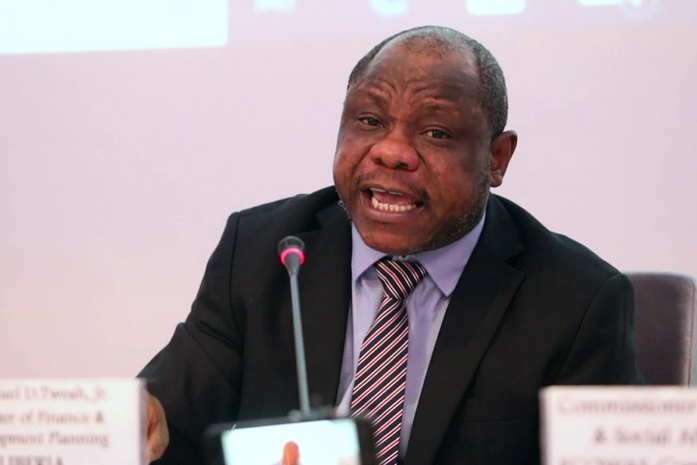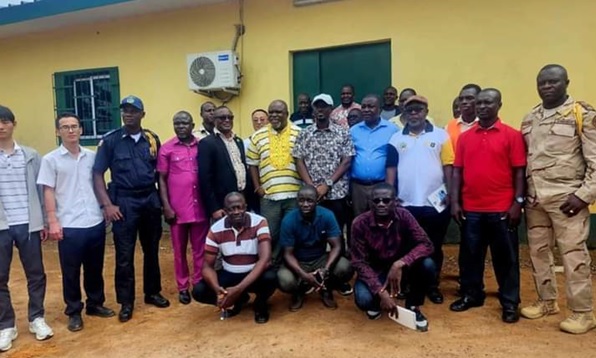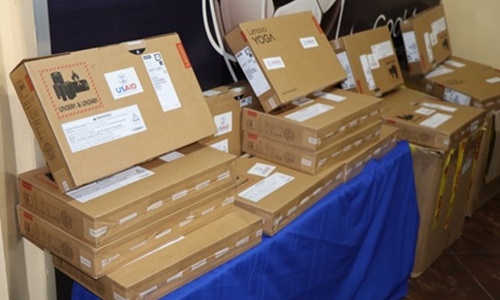MONROVIA – Former Finance Minister Samuel Tweah’s legal troubles have deepened despite posting an $8 million property bond, with state prosecutors identifying multiple defects that could render the bond invalid. On Tuesday, October 1, 2024, Criminal Court “C,” presided over by Judge A. Blamo Dixon, imposed strict travel restrictions on Tweah and several other high-ranking officials from the George Weah administration, intensifying the pressure ahead of Tweah’s corruption trial scheduled for November 12, 2024.
The state’s legal team, led by the Liberia Anti-Corruption Commission (LACC), has filed a notice of exception, challenging the legality of the bond Tweah presented to secure his freedom. Prosecutors argued that the properties used to back the bond are owned by third parties, Rudolph S. Cole and Refina J. Cole, and are not appropriately evaluated. Compounding the issue, the Liberia Revenue Authority (LRA) reported no records confirming ownership or value for property ID number 25115, a key asset listed in the bond.
Despite these flaws, Judge Dixon initially accepted the bond following Tweah’s voluntary surrender, a pivotal moment in his case stemming from allegations of financial mismanagement and corruption during his tenure as Minister of Finance. Tweah, along with several officials from the former Weah administration, is accused of playing a central role in misappropriating millions of public funds—a scandal that has gripped national attention.
The charges, including economic sabotage, theft of property, money laundering, criminal facilitation, and conspiracy, have far-reaching implications. The state is determined to prevent any attempt by the defendants to flee the country, as indicated by the imposition of a “Ne Exeat Republica” writ. This writ restricts Tweah and four other former officials, including Cllr. Nyanti Tuan, Stanley S. Ford, D. Moses P. Cooper, and Jefferson Karmoh, from leaving Liberia without explicit court approval.
The court order, effective immediately, also mandates the confiscation of the defendants’ passports, signaling a significant step by the judiciary to ensure accountability and prevent evasion of justice. The LACC’s case highlights alleged corruption that drained Liberia’s public finances and crippled its economic stability during Tweah’s time as a top government official.
As Tweah prepares for his trial, the state’s challenge to his $8 million bond raises questions about whether he will remain out of detention, as his legal team scrambles to address the bond’s shortcomings. This case is poised to become one of Liberia’s most significant corruption trials, and the outcome could set a precedent for how former officials are held accountable for financial misconduct.
With public trust in the government hanging in the balance, the trial and its ramifications for Liberia’s political landscape will be closely watched. Should Tweah be convicted, it could pave the way for further investigations into other former officials implicated in similar scandals. The legal proceedings, however, have only just begun, and the upcoming months will be crucial in determining the fate of Tweah and his co-defendants.
Liberians, weary of corruption and economic instability, are looking to the courts and the Boakai administration for decisive action to restore transparency and governance.







